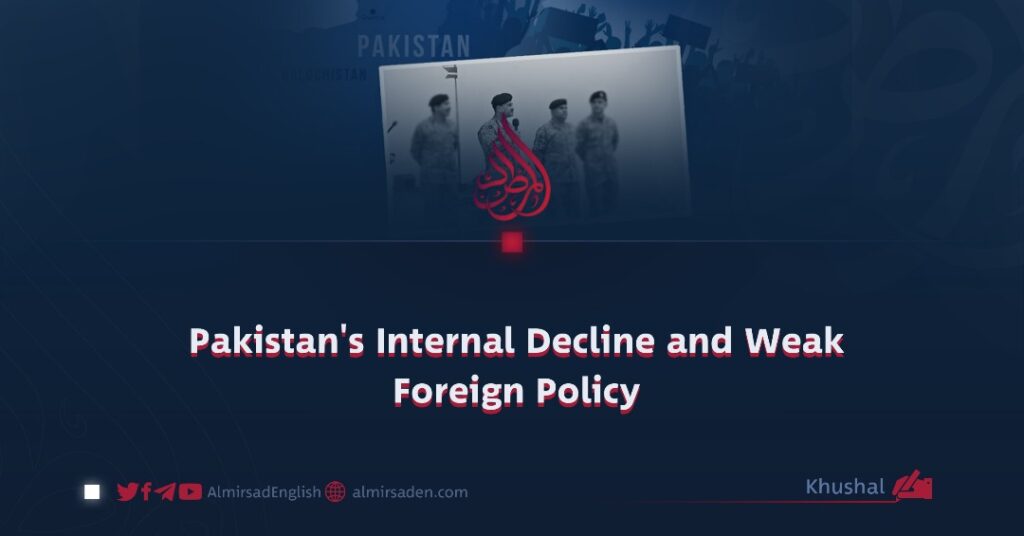By Khushal
At a recent press conference in Kabul, Zabihullah Mujahid, the spokesman for the Islamic Emirate of Afghanistan (IEA), delivered a series of pointed remarks about the political and military establishment in neighboring Pakistan. His comments have stirred heated debate and exposed sharp divisions among the Pakistani public. Yet, in a country where freedom of speech exists largely in theory and dissent often comes at the cost of one’s safety or even life, few have the courage to voice such uncomfortable truths.
It has now become apparent that Pakistan’s so-called civilian government, together with its entrenched military rulers, can no longer hide their secret dealings, illicit wealth, and manipulative power games under the pretense of “foreign policy.” Nor can they mask their internal failures by blaming Afghanistan or by launching Durand Line assaults meant to divert public attention.
Mr. Mujahid emphasized that ordinary Pakistanis and many civilian officials harbor no hostility toward Afghanistan. The real source of tension, he said, lies within a powerful circle of Pakistan’s military that places its own interests above national integrity and the public good. The Afghan government’s recent defensive actions along the Durand Line have exposed this circle’s destructive ambitions more clearly than ever before.
The Ambitions of Asim Munir
General Asim Munir, Pakistan’s current army chief, presents himself as a devout and noble figure. Yet, with the backing of his inner circle, he has steered Pakistan toward political and institutional ruin. Under his leadership, the army has disregarded the people’s aspirations, undermined the principles of good neighborliness, and abandoned the democratic ideals that the government claims to represent.
Munir’s network of military and intelligence officers has effectively seized the levers of state power, reducing Prime Minister Shehbaz Sharif to little more than a figurehead. In their quest to glorify Munir, they even conferred upon him the title of “Field Marshal” for a supposed victory over India, a claim so absurd that it has drawn ridicule at home and abroad. Meanwhile, Pakistan’s obsequious behavior toward Washington and the Prime Minister’s deferential conduct at the Gaza peace summit have further tarnished the country’s image on the international stage.
A Nation Growing Restless
Public discontent within Pakistan is rising rapidly. Many citizens have condemned the army’s unprovoked attacks on Afghan territory, urging the government to focus instead on addressing domestic crises. Yet, the military has chosen repression over reflection, silencing critical voices and offering no explanation for the casualties and destruction caused by Afghanistan’s defensive responses.
The ISIS Project
For decades, Pakistan’s military establishment has used militant groups as instruments of foreign policy. Today, it appears to be reviving this old strategy by protecting ISIS-K elements in regions such as Orakzai. The aim is to present these militants as an international threat in order to attract foreign attention and funding. In reality, these factions are homegrown creations of Pakistan’s own security apparatus. There is no credible evidence of ISIS or any other external network operating from Afghan soil. The destabilizing designs that the Pakistani army attributes to others are, in truth, its own making.
The TTP Challenge
The Tehreek-e-Taliban Pakistan (TTP) now poses the most serious challenge to Pakistan’s army. The movement itself is the direct consequence of years of military oppression and injustice in the Pashtun and tribal regions. TTP mujahidin conduct regular and effective operations against Pakistani outposts, while the army struggles to respond, exposing serious weaknesses even in the eyes of its Western allies. To deflect blame, officials routinely accuse Afghanistan of harboring and supporting the TTP, yet they have never produced credible evidence. The reality is unavoidable: the TTP is an internal problem born of Pakistan’s own policies, not an Afghan export.
Illicit Networks and Military Corruption
Within Pakistan’s armed forces, a powerful faction has accumulated enormous wealth and influence. Many among them hold foreign citizenship, preparing to settle abroad once they retire or when instability deepens at home. Reports suggest that this faction is also involved in drug trafficking, smuggling, and kidnapping, operations that yield millions of dollars laundered into private and black-market enterprises.
Given these entrenched interests, it is unrealistic to expect this elite to conduct relations with neighboring countries on the basis of honesty and international law. Dialogue and diplomacy hold little value for those who profit from perpetual conflict. As a result, Pakistan’s foreign policy has grown increasingly incoherent and morally bankrupt.
Lessons from the Durand Line
The recent clashes along the Durand Line have underscored a truth that Pakistan’s generals would do well to remember: Afghanistan cannot be subdued through aggression or intimidation. The Afghan people draw strength from their unity and from a government whose legitimacy rests on popular will. Afghanistan continues to advocate for peaceful and balanced relations, urging Pakistan to abandon outdated policies of coercion and intrigue. The IEA’s foreign policy now stands on independent and stable foundations, guided by national interest rather than external pressure.
It would serve Pakistan’s military leaders to reflect on their country’s trajectory before dragging it further into decline. They must stop tarnishing the nation’s dignity and spare future generations the burden of inherited hostility toward their neighbors. The army should return to its rightful role as a national institution devoted to defending the people and the homeland, not as an instrument for private or foreign ambitions. Unless this changes, Pakistan risks repeating the bitter lessons of its past conflicts with India and Bangladesh.
